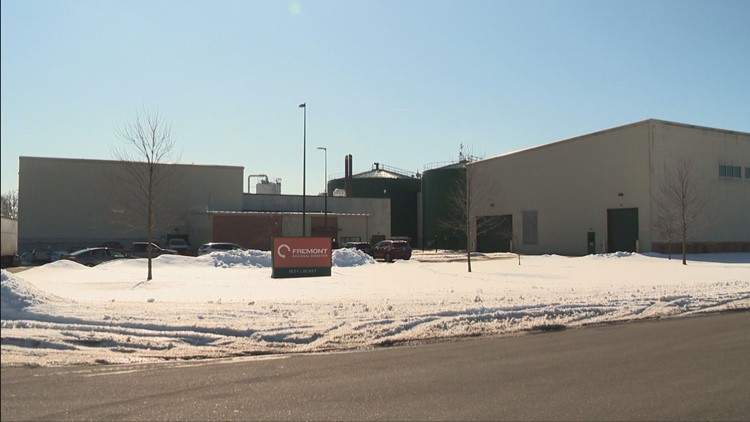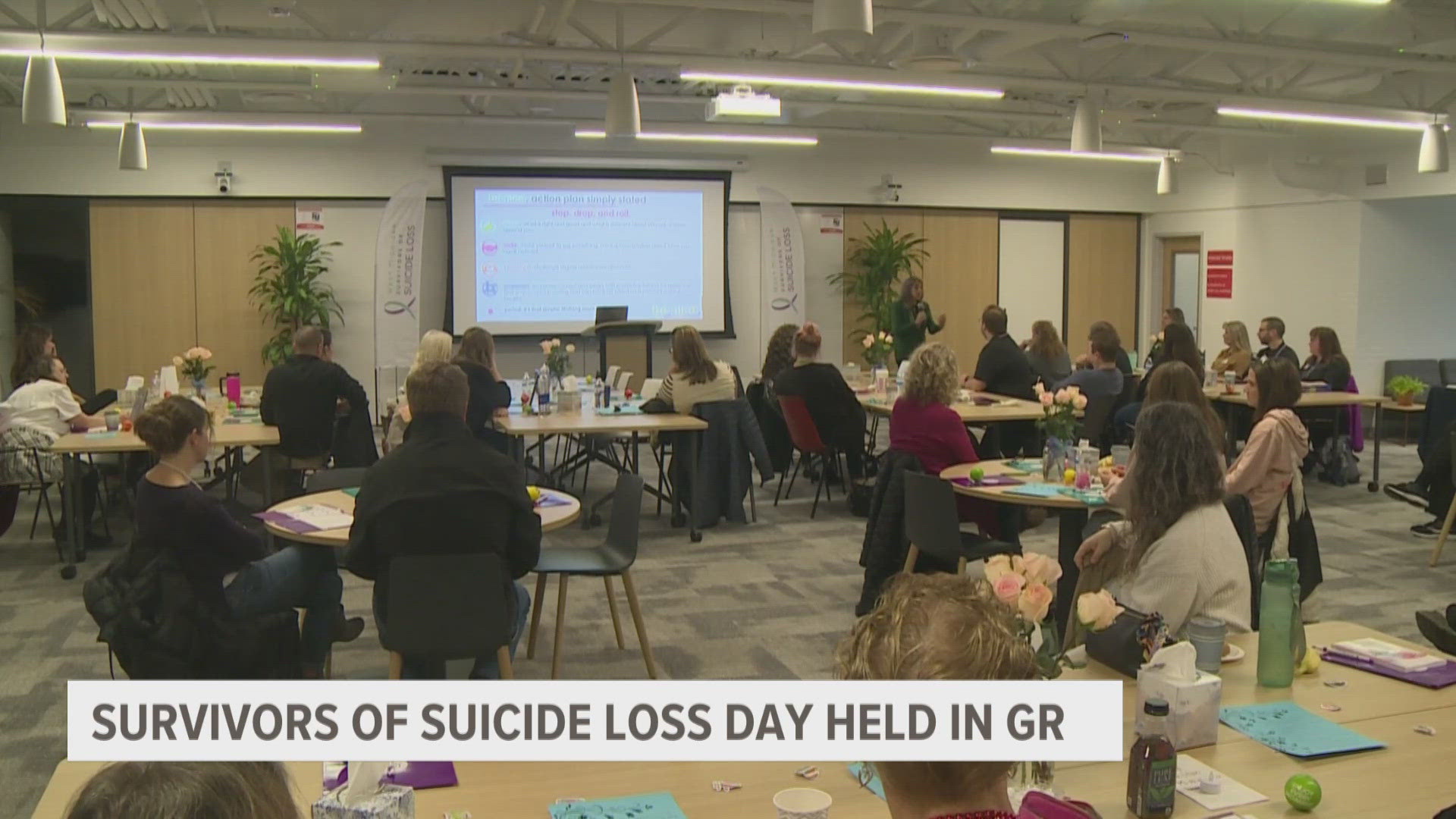FREMONT, Mich. — Editors Note: Since our story originally aired the Michigan Department of Environment, Great Lakes and Energy contacted 13 On Your Side disputing many of the facts and allegations made by Bill Caesar, president of Generate Upcycle.
The Michigan Department of Environment, Great Lakes and Energy is responding to claims by the Fremont Regional Digester saying its regulations are putting them at risk of closure.
The digester claims new regulations consider fertilizer as an industrial pollutant but EGLE says no regulations have changed.
The digestate being applied to farm fields is liquid and does not meet the definition required for the agricultural exemption it has been operating under. Instead, it requires a discharge permit to help protect groundwater resources that may receive contaminants present in the liquid.
EGLE sent a letter to the President of the Generate Upcycle, which owns the Fremont digester, saying that their digestate does not contain nutrient value at the application rate required to be considered a fertilizer, and that it is not a “solid,” which would allow it to operate under the agricultural exemption.
The digester asked EGLE about what has changed when it comes to regulations and asked if it's facility could operate under an Agricultural Use Approval.
EGLE contends the nature of the digestate no longer meets the standards to continue operating under the agricultural definition.
The Fremont Regional Digester says it converts organic and food waste into renewable energy rather than going into landfills and provides organic fertilizer for local farmers.
In the letter, EGLE told Generate Upcycle that it has found media reports associated with the digesters opening 20 years ago that describe feedstock as manure, apple cores and other solid materials.
"They contain very little mention of the highly liquid feedstock that the reports you have provided to ELGE illustrate," the letter went on to say. "We have also been informed that the lagoons currently utilized by the facility to store its large volumes of digestate were not constructed, according to our records, until 2018."
EGLE's Water Resources Division applies laws which require liquid digestate applied to land as an pollutant, which Generate Upcycle and FRD say is a "nutrient-rich fertilizer."
"Their assertion runs contrary to the approach taken by every other state, province and country where we operate. The new approach will require extensive changes in how, when and where we apply digestate as well as forcing the farmer partners whose land we use to essentially become our subcontractors," said Bill Caesar, president of Generate Upcycle.
Caesar also said this decision would impact farmers.
"Farmers who choose to use our liquid fertilizer on their fields would lose the ability to make their own agronomic decisions about when they plant what they plant, and how they apply other fertilizers to their farms," Caeser said.
Fremont City Manager Todd Blake says the digester generates enough power for 3,500 homes, something he says would be a great loss to the community.
"3,500 homes mean basically they're powering the whole Fremont community," Blake said. "They're providing energy and putting it into the grid system that does power a community of our entire size. Fremont Regional Digester remains a friend to the city of Fremont. It means a lot as well as you know, to the companies in West Michigan."
"The fact that they want to treat this as an industrial pollutant doesn't work at all for the material that we're producing," Caeser said. "We need to get the regulation of our digestate out of the Water Resources Division and into another regulatory agency that is familiar with the material and knows how to regulate it properly."
Caesar explained that the Water Resources Division cited concerns over groundwater contamination, which he refuted.
"The composition of our inbound material, and the liquid fertilizer that we apply on agricultural fields known as digestate, has been consistent since we began operating the site, and there is no record that any digestate we have applied has ever contaminated groundwater," Caesar said.
"EGLE staff determined that the facility’s liquid residuals could not legally be authorized for land application under Michigan’s solid waste program, which can authorize the land application of solids and sludges," the letter from EGLE went on to say. "Liquid wastes applied to the ground require a different legal authorization - a groundwater discharge permit. This was communicated to Generate Fremont two years ago, and they have been allowed to continue to operate under the AUA while the groundwater permit is being developed."
EGLE says it plans to have a final draft of the groundwater permit in the very near future. The permit will be public noticed and allow public comment.
After a permit is issued, Generate will have the ability to legally contest the permit if you believe the EGLE has issued a permit that is not in compliance with the statute and supporting regulations.
The president of Upcycle issued this statement in response to the letter:
"Unfortunately, Generate Upcycle received EGLE's letter at the same time it was shared with the media. We have always been eager to work with EGLE to correct a number of inaccuracies in the department's understanding of our process and the organic products we produce. Some of the misunderstandings are reflected in this correspondence. Ultimately, we remain committed to working with ELGE and state regulators to achieve a reasonable solution to keep the Fremont Regional Digester in operation." -Bill Caesar, President, Generate Upcycle.
You can read the letter from EGLE here:
►Make it easy to keep up to date with more stories like this. Download the 13 ON YOUR SIDE app now.
Have a news tip? Email news@13onyourside.com, visit our Facebook page or Twitter. Subscribe to our YouTube channel.
Watch 13 ON YOUR SIDE for free on Roku, Amazon Fire TV Stick, and on your phone.



